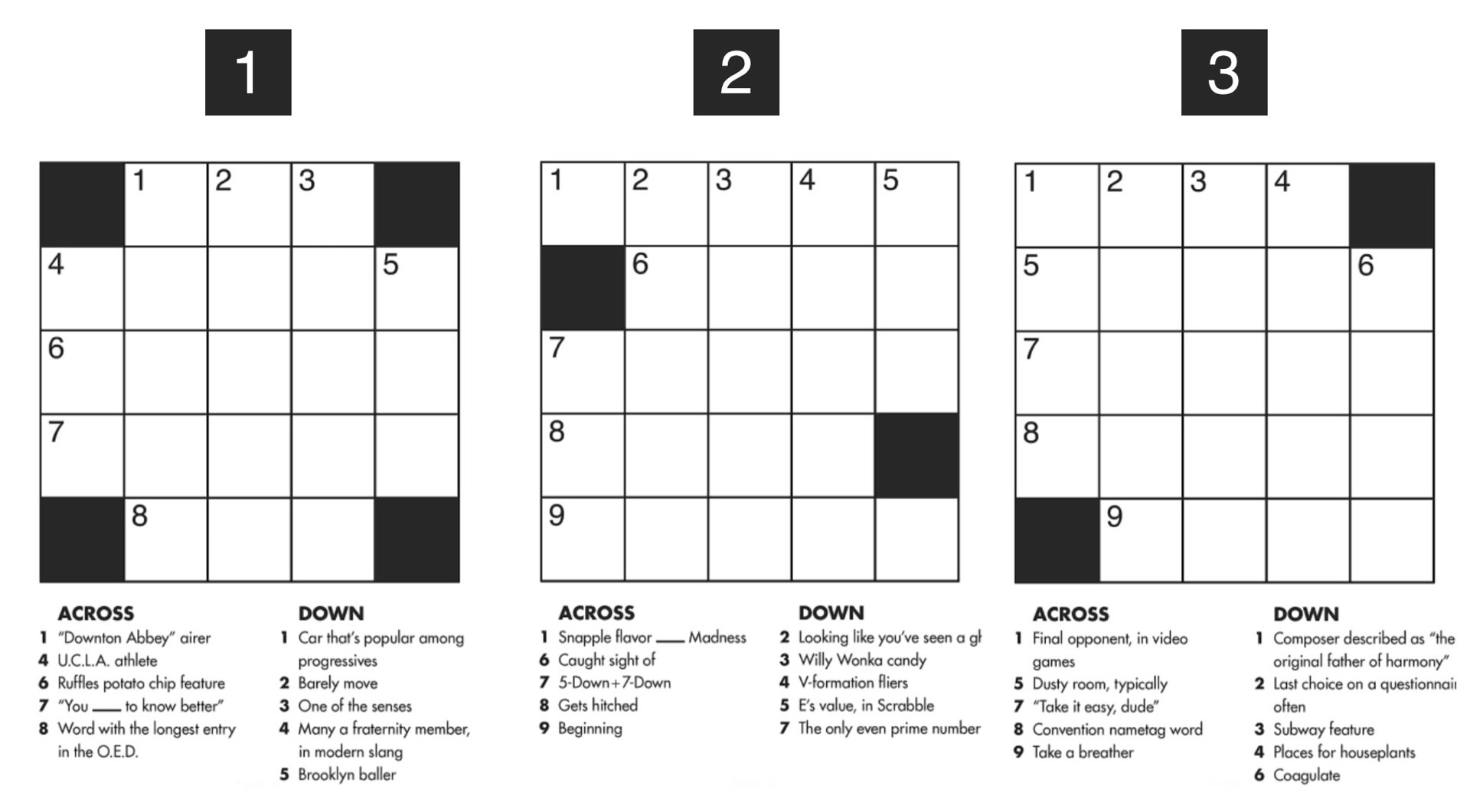
Every day, the New York Times Mini Crossword poses a captivating mental challenge to its solvers. The December 28th edition was no exception, presenting a compact grid teeming with clever clues and linguistic intricacies.
The Mini Crossword differs from its larger counterpart in its 5×5 grid and concise clues. However, it demands no less acumen, as each answer is a mere two or three letters long.
The clues themselves range from straightforward definitions to playful puns and cryptic allusions. For example, the clue “Held captive” seeks the answer “CAB,” while “Marshaled” calls for “HERDED.”
Beyond the surface meanings, the Mini Crossword delves into linguistic nuances and cultural references.
Interplay of Homophones
Homophones – words with the same sound but different meanings – abound in this puzzle. The clue “Wet” hints at both “SOAK” and “SEA,” while “Rips” can refer to either “TEARS” or “SABS.”
Historical Allusions
The Mini Crossword also incorporates references to historical figures and events. The clue “Nile Valley ruler” evokes the enigmatic “PHARAOH,” while “Leader from the Underground Railroad” points to the abolitionist “TUBMAN.”
The Mini Crossword’s brevity demands meticulous word choice. Each clue is a carefully crafted sentence, with every word serving a specific purpose.
For instance, the clue “See a movie” could have simply stated “WATCH,” but the addition of “see” subtly hints at the visual aspect of the answer. Similarly, “Make a sharp sound” might have read “HONK,” but “TRUMPET” suggests a more musical connection.
The Mini Crossword attracts solvers with diverse backgrounds and skill levels. Some view it as a quick and enjoyable mental exercise, while others approach it as a competitive challenge.
Recreational Puzzle-Solving
For many, the Mini Crossword is a delightful way to unwind and stimulate their minds. Its brevity makes it accessible to solvers of all ages and abilities.
Competitive Crosswording
A growing contingent of crossword enthusiasts engage in competitive solving. The Mini Crossword is an ideal platform for this, due to its compact size and daily frequency.
Studies have shown that crossword puzzles offer cognitive benefits, including improved working memory, increased attention span, and enhanced problem-solving skills.
Researchers at the University of Texas at Dallas found that habitual crossword solvers have larger and more active brain regions associated with language and memory.
The December 28th NYT Mini Crossword is a testament to the art of concise and clever wordplay. Its compact grid challenges solvers to think critically, appreciate linguistic nuances, and delve into cultural references.
Whether enjoyed as a recreational pastime or as part of a competitive pursuit, the Mini Crossword offers a valuable exercise for the mind. Its ability to engage solvers of all backgrounds underscores its timeless appeal and the enduring power of word puzzles.












